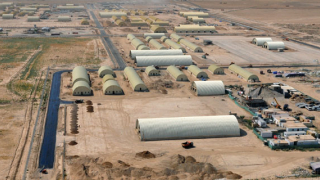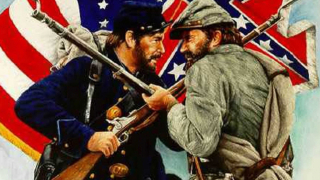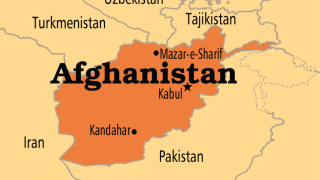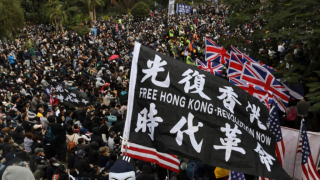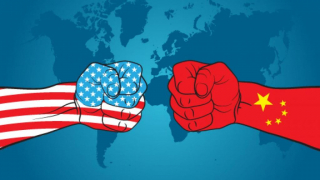Afghanistan and the limits of American Exceptionalism
American exceptionalism
Since its creation, the United States of America has thought of itself as morally and ideationally superior to others. The comparison at the time was of course drawn with European imperialist nations. The famous French Philosopher Alexis de Tocqueville, first referred to America as “exceptional” almost 190 years ago. Before that America was also referred to as a “City upon a hill” and more recently to being the “indispensable nation” for the world. America has always thought of itself – and persuaded- others of is exceptionalism. The exact meaning of the term is not specific though it generally means -- that the United States, in its governance, politics, mission, and place in the world, is unique, and, in its most extreme version, qualitatively superior to other nations – the notion that abides to this day. Also, if needs be, the US should not hesitate to act -unilaterally- to ensure the survival and prosperity of the liberal order and democratic values to which it espouses.
Barring other forms of “exceptionalism” the Wilson exceptionalism, sought to “fix” other nations that might not be like the US due to varying government structures or political differences. The neoconservatives in the second half of the 20th century re-cast this need to “fix” other nations by advocating military interventions, unilateralism, regime change and institution building abroad. They speak of using military superiority to ensure democracy across the globe as that would ensure security for all.
The idea of being “exceptional” provides for patriotic flattery at the domestic level and legitimizes foreign policy behavior internationally. After the disintegration of the Soviet Union, a catalyst of sorts was needed to put this transformed neoconservative interpretation of “American exceptionalism” in effect. Prior to 9/11, America basked in another term, the unipolar power, also especially designed for domestic consumption and to extract the support for action abroad. It also birthed the urge within US political elite to lead the world and set things right as per there vision. The 9/11 incident provided the impetus to test the concept of exceptionalism. Domestically post 9/11, President Bush gained significant backing from general public and Congress alike. Despite the fact that he was elected in a questionable manner, to say the least.
Afghanistan
Such a support allowed President Bush to sign into law the Authorization to Use military power against those who orchestrated 9/11. The measure allowed him to declare war and authorize pre-emptive strikes globally. Both interventions in Afghanistan and Iraq were initiated with the ideas of regime change – of Taliban and Saddam Hussein respectively - and later transformed into institution building, ensuring effective governance and spreading democratic values. President Bush, thus, sought to forge the world in America’s image by using its military supremacy.
The fall of both regimes, Taliban and Saddam was swift. This was the easy part. Exporting democracy and institution building would be the hard part. President Bush laid the foundations of post war engagements by saying that there is a need to export democracy and institution building to make Afghanistan a better place. However, going beyond military aims and the capacity to deliver on political fronts sustainably was questioned in Senate’s Committee on Foreign Relations as early as 2002. It was argued that the toppling of Taliban regime is the first step, but can the US make the system and the new regime work? But such apprehensions were set aside as the Bush administration was bent on making the experiment work.
Democracy and institution building
Major combat was declared to be over in 2003, a new constitution was adopted in 2004, and a joint declaration in 2005 highlighted the need to “strengthen US-Afghan ties and help ensure Afghanistan’s long-term security, democracy, and prosperity”. These reference points highlight transition from military action to exporting democratic values and the need of institution building to “fix” the nation.
Despite these developments, the Taliban movement persisted and continuously gained traction. By 2007, the insurgent group had become a force on the battlefield. Corruption, nepotism and serious capacity issues within the Afghan National Army laid bare the limits of American values of governance, political setup and institution building throughout the war. The elections of 2009 also raised concerns about the legitimacy of President Hamid Karzai. Successive elections faced similar issues of lack of transparency and rigging. Many in the US administration suggested to limit Afghan entanglement to military outcomes and not entertain ideas of exporting democracy and institution building. However, by 2009, witnessing the gains of Taliban, Obama administration sought to further increase the number of troops in Afghanistan, the so called “surge” to strengthen the institution of military and train Afghan National Army (ANA) and paramilitary forces to eventually deal with the crisis. After handing over security in 2014 to ANA, foreign forces in Afghanistan continued efforts to build, train and equip it to fight the Taliban.
None of the efforts would come to bear fruit. As US engaged the Taliban on the political front to end her longest war, the only guarantee it received from Taliban was that they will not allow terrorist organizations to use Afghanistan as a launching pad for their acts. With that the US left Afghanistan to its fate and with the belief that institutions and democracy would protect them. Even after 20 years of being in the war, the US administration could not read the writing on the wall as President Biden rubbished the idea of “Taliban overrunning everything” based on his misplaced belief in American trained Afghan security forces. Similarly, the political structure and governance model introduced by the US could not bring the Taliban to the negotiating table and also fell short of providing any framework towards a national reconciliation. President Ashraf Ghani fled the country as Taliban mounted their final attack on Kabul. So much for political structures, governance and democracy!
As far as the institutions that the US established in Afghanistan and maintained for two decades are concerned, they could not withstand one week of Taliban onslaught. The utter and staggering collapse of the Afghan state raises the question: what did the US exactly achieve in Afghanistan? What purpose did the American “Exceptionalism” serve in Afghanistan?
Increasing domestic pressure to end the war and the state of economy -despite military recommendation to remain in Afghanistan militarily - have prompted the US to leave Afghanistan and abandon the myth of exceptionalism -- at least for now. As US continues to extract itself from foreign military engagements, its objective to “fix” others states all lies tattered.
The complete collapse of the Afghan state makes clear the limitations of exporting democracy and engaging in institution building abroad. Jargons and terms like American Exceptionalism or US as the standard bearer of democracy globally are still popular among certain sections of American policymakers. However, as a foreign policy tool such terminology serves no purpose.*
*Views and opinions expressed are those of the author and do not present those of SDPI.




